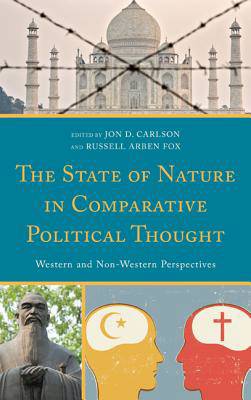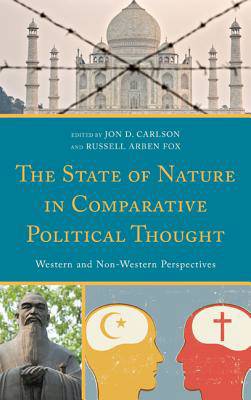
- Retrait gratuit dans votre magasin Club
- 7.000.000 titres dans notre catalogue
- Payer en toute sécurité
- Toujours un magasin près de chez vous
- Retrait gratuit dans votre magasin Club
- 7.000.0000 titres dans notre catalogue
- Payer en toute sécurité
- Toujours un magasin près de chez vous
The State of Nature in Comparative Political Thought
Western and Non-Western Perspectives
249,45 €
+ 498 points
Description
The State of Nature in Comparative Political Thought addresses non-Western conceptions of the "state of nature", revealing how basic questions related to political thought are reflected in Chinese, Islamic, Indic, and other cultural contexts. It contributes to the burgeoning field of comparative political theory, and should be of interest to political theorists, regional specialists, students of globalization, as well as anyone interested in non-Western approaches to basic political questions.
Spécifications
Parties prenantes
- Editeur:
Contenu
- Nombre de pages :
- 328
- Langue:
- Anglais
- Collection :
Caractéristiques
- EAN:
- 9780739167632
- Date de parution :
- 11-11-13
- Format:
- Livre relié
- Format numérique:
- Ongenaaid / garenloos gebonden
- Dimensions :
- 155 mm x 231 mm
- Poids :
- 566 g

Les avis
Nous publions uniquement les avis qui respectent les conditions requises. Consultez nos conditions pour les avis.





